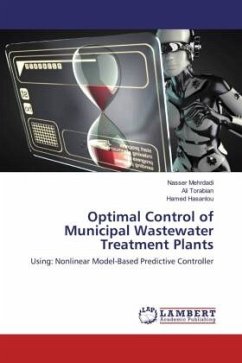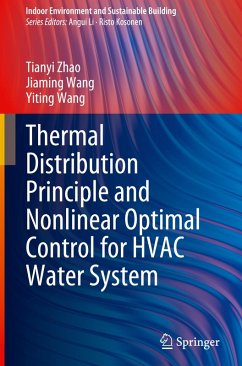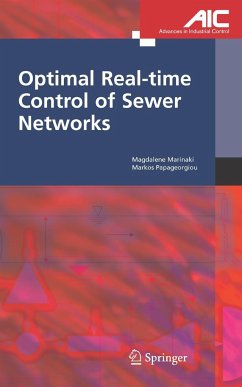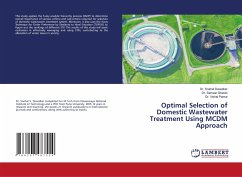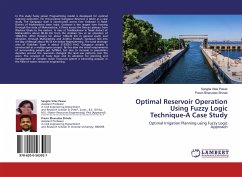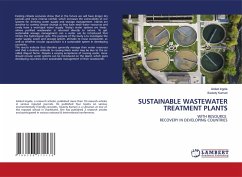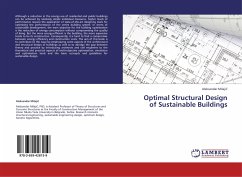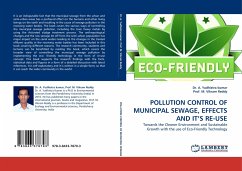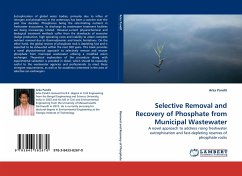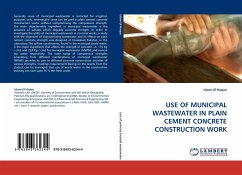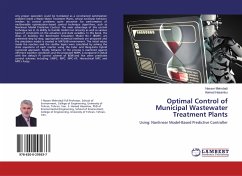
Optimal Control of Municipal Wastewater Treatment Plants
Using: Nonlinear Model-Based Predictive Controller
Versandkostenfrei!
Versandfertig in 6-10 Tagen
36,99 €
inkl. MwSt.

PAYBACK Punkte
18 °P sammeln!
Any proper operation could be translated as a constrained optimization problem inside a Waste Water Treatment Plants, whose nonlinear behavior renders its control problems quite attractive for performance of multivariable optimization-based control technique algorithms, such as Nonlinear Model Predictive Control. The main advantage of this control technique lies in its ability to handle model non linearity as well as various types of constraints on the actuators and state variables. In this book, the steps of building the Benchmark Simulation Model No.1 (BSM1) are presented step by step, appro...
Any proper operation could be translated as a constrained optimization problem inside a Waste Water Treatment Plants, whose nonlinear behavior renders its control problems quite attractive for performance of multivariable optimization-based control technique algorithms, such as Nonlinear Model Predictive Control. The main advantage of this control technique lies in its ability to handle model non linearity as well as various types of constraints on the actuators and state variables. In this book, the steps of building the Benchmark Simulation Model No.1 (BSM1) are presented step by step, appropriate numerical methods are proposed and the simulation model is created in MATLAB environment. The initial values inside the reactors and the clarifier layers were calculated by solving the state equations of each reactor using the Euler and Rang-Kuta hybrid numerical approach. Finally, behavior of the process is examined against different weather conditions and the proposed NMPC is compared in detail with the default PI control scheme of BSM1and five other predictive control schemes including: EMPC, MPC, MPC+ff, Hierarchical MPC and MPC+Fuzzy.



